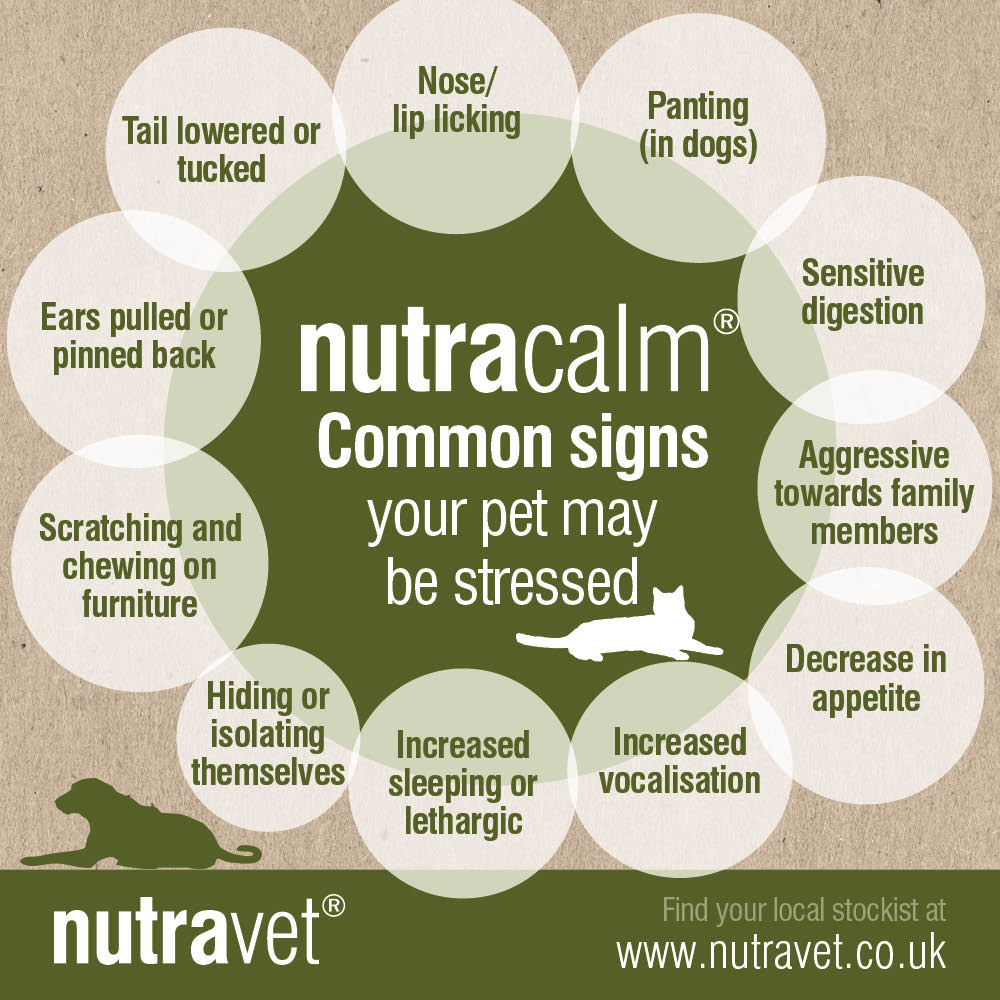Fireworks and Stress

Remember, remember the 5th of November… We may know why we celebrate bonfire night each year, but for our pets that are scared of the noises created by the fireworks, they remember that night for different reasons.
Even though there may not be large firework displays this year, there is concern that there may be even more local fireworks displays in private gardens instead.
You may have a pet that can sit and watch fireworks quite happily with no worries, but if you have a dog or cat that is fearful of them you will be well aware of the stress caused by those loud bangs. Each year, these fearful behaviours can escalate, and some pets will even start getting scared when it gets dark and the leaves start falling, long before bonfire night. Unfortunately fireworks are not just restricted to one night- and this does make it harder to predict when your pet may have a stressful experience.
Fearful behaviours seen:
• Excessive panting
• Hiding or trying to run away
• Excessive vocalisation
• Over grooming/licking
• Digging the carpet
• Soiling in the house
What can we do to help them?:
• Try and prevent walking dogs when it turns dark in case fireworks are set off
• Keep pets inside
• Put music on (music is more of a constant noise than the TV)
• Keep the curtains drawn.
• Make a den/nest for them to hide in, and allow them to hide where they want.
• Try not to comfort them as this can sometimes reinforce behaviours by making them think they are right to be scared
• NEVER tell them off- this only makes them more scared.
Supportive medicine:
We can use supplements and behaviour modifiers to support and reduce a negative response to fireworks. There is a new supplement called Nutracalm which works within 1-2 hrs of administering and can really help to reduce stress by stimulating the body to produce serotonin.
There are also other supportive treatments such as Zylkene, Adaptil and Sileo. Each pet will respond differently to these treatments, and so it is important to treat each pet as an individual and find a plan that suits them best.
Sometimes we do need to resort to using medication to help calm them, but we always try to use behavioural modification first as some forms of sedation immobilise your pet but won’t reduce their fear.
If you are worried about how your pet may react to fireworks, or you know that they are already fearful of fireworks (or other loud noises) then do not hesitate to phone us at the Cape Veterinary Clinic for advice on 01483 538990.
Catherine Hannah BVSc MRCVS.
References: RSPCA, zylkene.